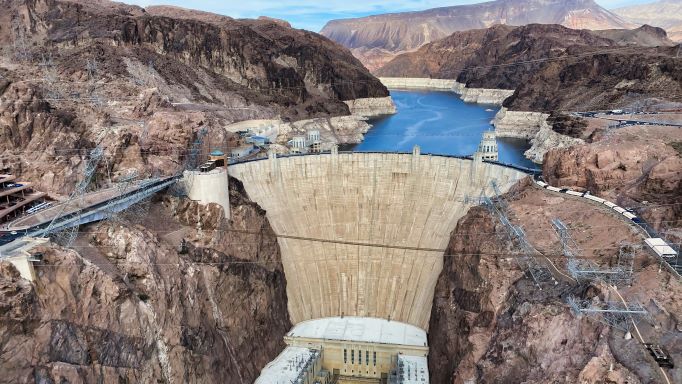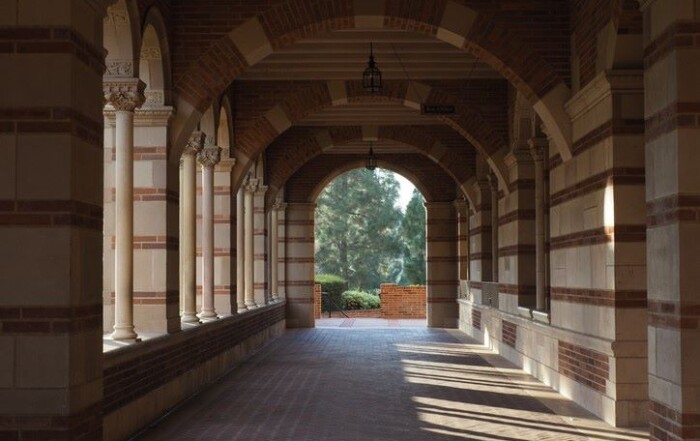Recent news of the Colorado River’s steep drop in water flow has reignited a conversation about future water needs and water use in California and the American West. The Colorado River is seeing its 23rd year of official drought according to the Bureau of Reclamation, while historically giant reservoirs like Lake Mead and Lake Powell suffer extremely low water levels. In addition, Lake Havasu is reportedly so low in water level that the hydropower its water flow feeds to Hoover Dam is at risk. Millions could be deemed powerless as a result.
Not often discussed is the agricultural consequences of a trickling Colorado River. According to Vox.com, farmers in Western Arizona and our own Imperial Valley account for 75 percent of all water taken out of the river. These two regions account for production of 90 percent of the countries leafy greens and many vegetables. The enduring costs of climate change will only make the water emergency worse, with California expected to take a 10 percent hit to our available water supply over the next 20 years.
Last week, Governor Gavin Newsom released a water supply strategy that puts real money behind several proposed solutions to our persistent drought challenges. The plan includes, among its proposals:
- Creating storage space for four million acre-feet of water
- Recycling and reusing “at least” 800,000 acre-feet of water per year by 2030
- Making better use of wastewater that currently discharges to the ocean
- Saving 500,000 acre-feet of water through more efficient water use measures and conservation
- Capturing stormwater
- Desalinating ocean water and salty groundwater
- Diversifying water supply and making the most of higher water flows during storms
- Investing in modernizing our water systems
- Reducing water use in cities and on farms
- Improving water management through stronger data, forecasting, and better administration of water rights
Apparently, some of the rules used to administer water rights date as far back as the Gold Rush. And only so much stormwater can be captured. So policy changes and moves to invest in water storage, capture, and efficient use, while incredibly helpful, won’t be enough. What Californians and other Westerners are going to have to understand is that our behaviors must change. Shower times must be limited. In fact, showers should be turned off and on during moments of shampooing or lathering up before we turn back on to rinse. Sinks can’t be left on for the entirety of a tooth brushing. More dishes need doing in newer, water-efficient dishwashers that should be full before being run. Washing machines should only be running full loads of laundry. Tankless water heaters should be adopted by homeowners who can afford the transition so that water heats up more quickly and efficiently instead of running for several minutes. Homeowners associations and landlords need to invest in drip systems for common area gardens and landscapes. They should also be investing in rain barrels to capture rainwater that can augment gardening needs. Homeowners must convert their inefficient spray sprinklers to efficient systems so they are not watering so much adjoining concrete or asphalt. Industry and commercial real estate property managers should be required to find efficiencies in their operations and the state should be funding a significant public education effort in that regard to ensure it happens.
Panic isn’t the answer, but neither is the useless “pearl-clutching” or whining that we shouldn’t have to sacrifice so much to preserve water. Everybody plays a part here – industry, commercial real estate, rental properties, and homeowners alike. The suggestions in the previous paragraph are not difficult asks of each of us. We are in a climate emergency and need to start behaving as such.
Photo by Ryan Thorpe
Tips for saving Water from the State of CA: https://drought.ca.gov/water-saving-tips/
Stay informed. Sign up for The Westside Voice Newsletter
By clicking submit, you agree to share your email address with Westside Voice. We do not sell or share your information with anyone.








